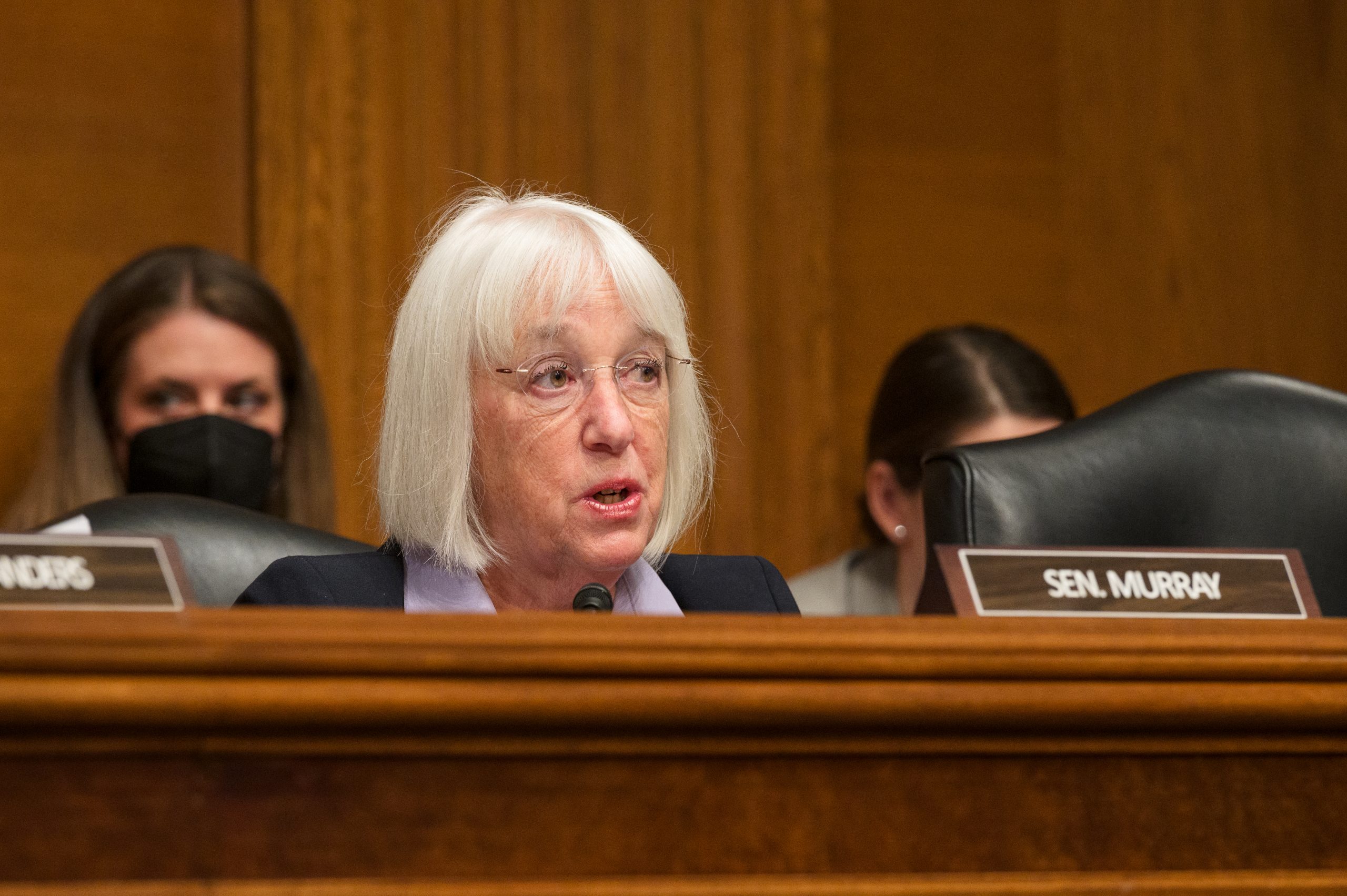New bipartisan legislation led by Murray would provide overdue recognition and assistance to families of servicemembers lost in non-combat military plane crashes, including those who perished in tragic 1963 Flight 293 from McChord Air Force Base to Elmendorf Air Force Base
ICYMI from KIRO 7: 61 years after Flight 293 disappeared, podcast raises new questions and interest
Washington, D.C. — Today, U.S. Senators Patty Murray (D-WA), a senior member and former chair of the Senate Veterans’ Affairs Committee, and Dan Sullivan (R-AK), a member of the Senate Armed Services Committee, introduced the Flight 293 Remembrance Act—new legislation that would provide overdue recognition and support to families of the hundreds of servicemembers whose lives have been tragically lost in non-combat military plane crashes. Companion legislation in the House has been introduced by U.S. Representative Marilyn Strickland (D, WA-10), a member of the House Armed Services Committee.
The legislation was inspired by the infamous Flight 293, which left McChord Air Force Base in Washington state on June 3rd, 1963, en route to Elmendorf Air Force Base in Alaska with 101 people on board—58 members of the military, 22 family members and a Seattle-based flight crew of six—and disappeared two and a half hours after leaving the tarmac. As pointed out for many years by Tonja Anderson-Dell of the group Honored Bound, whose grandfather disappeared in a military crash in Alaska in 1952, the Flight 293 families—like her own family and so many others—have felt left behind and excluded.
Since World War II, hundreds of military personnel have been classified as “Missing Not In Action” (M-NIA) following non-combat plane crashes—and unlike the families of those classified as “Missing in Action” (MIA), who receive regular updates from the Department of Defense (DoD) and invitations to remembrance events, M-NIA families have long been left unsupported and excluded from these resources. The lack of a formal recognition system for M-NIA servicemembers has resulted in these families being denied the public acknowledgment, memorials, and support services they deserve. The bipartisan Flight 293 Remembrance Act seeks to correct these disparities by ensuring that the sacrifices of M-NIA servicemembers are properly recognized, their families receive essential support, and they are included in remembrance efforts.
“For far too long, the U.S. government has treated the families of servicemembers who went missing in non-combat plane crashes differently—denying them the communication, acknowledgement, and public support that other families of missing servicemembers receive,” said Senator Murray. “It’s long past time to fix this and at least provide federal recognition for families who lost loved ones in tragic accidents like Flight 293. Our legislation would ensure that the service of our fallen heroes is commemorated and that their families receive the recognition and assistance they deserve—I’ll be working hard to get this commonsense bipartisan solution across the finish line.”
“Our brave men and women in uniform encounter risks to their lives when carrying out their day-to-day duties for our country, even when not in combat or in a warzone,” said Senator Sullivan. “American service members killed in these kinds of non-combat circumstances, like the tragic crash of Flight 293 in 1963, deserve to have their service and sacrifice recognized and honored by a grateful nation. I’m glad to join Senator Murray in introducing legislation to ensure all service members who’ve laid down their lives for our country are properly remembered and included in memorial activities, and to provide solace and support for the families and loved ones they left behind.”
“This bill will help families get the recognition and assistance they need when their loved one is lost in a tragic, non-combat plane crash,” said Congresswoman Marilyn Strickland (D, WA-10).
“The Tragedy Assistance Program for Survivors (TAPS) is honored to support the Flight 293 Remembrance Act and thanks Senators Murray and Sullivan for introducing this significant legislation, which seeks to recognize families of service members lost or missing from non-combat military plane crashes,” said Bonnie Carroll, TAPS President and Founder. “Ensuring these families the same level of commemoration and support as the families of those Missing in Action will help provide much needed resources and closure for these surviving families, while honoring the service and sacrifice of their loved ones.”
Specifically, the Flight 293 Remembrance Act would mandate that the Department of Defense (DoD) and the Department of Veterans Affairs (VA) create a publicly accessible database documenting all non-combat military plane crashes, ensuring the preservation of the names, ranks, and service details of those who perished in these incidents. It also directs the DoD to enhance resources for families of military personnel who have been classified as “Missing Not in Action,” ensuring they are informed of available support services and connected to peer support networks. Furthermore, the bill requires the DoD to submit regular reports to Congress, evaluating the effectiveness of these efforts, gathering family feedback, and making recommendations for improving support. A one-pager with additional details on the legislation can be found HERE.
The legislation is endorsed by the Military Officers Association of America (MOAA), National Military Family Association (NMFA), and Tragedy Assistance Program For Survivors (TAPS).
The full text of the legislation can be found HERE.
###


